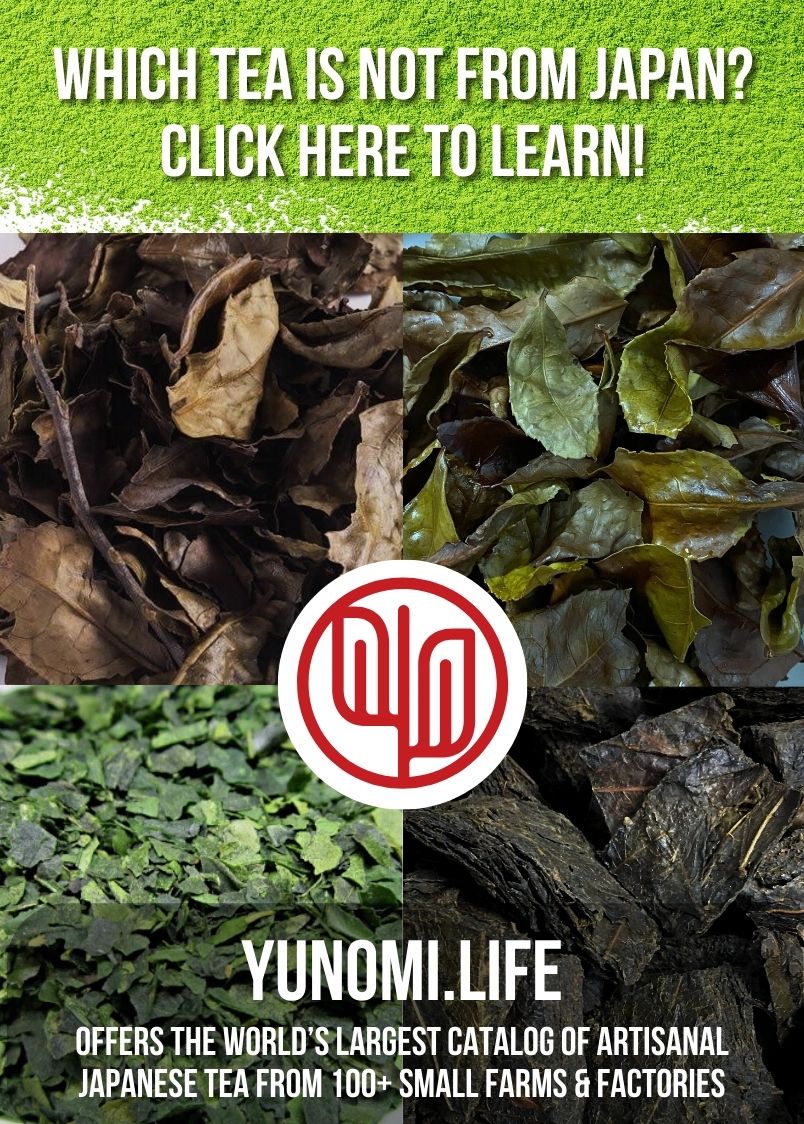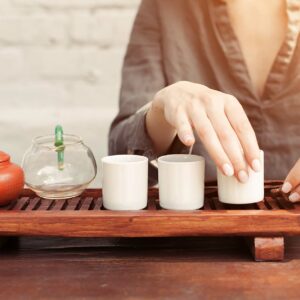Home › Dialogues › Tea Making › Anecdotes about tea from old China
- This topic has 3 replies, 2 voices, and was last updated 9 years, 2 months ago by
ICE.
-
AuthorPosts
-
-
2015.02.16 at 1:11 pm #12636
pancakes
ParticipantThe Good Earth is a novel written by Pearl Buck in the early 20th century. She lived for some time in China’s Anhui province, and the main character in her book is a farmer from that area.
Some of the descriptions are really neat, because they include descriptions of many different aspects of life, like food and drink. For example, the main character is a poor farmer, and a typical meal for him is steamed bread (mantou) with some garlic stuffed inside. People as poor as him are stereotyped as people with garlic on their breath. If he goes into the town, then he can get more “fancy” things, and buy a bowl of noodles, or drink some tea. In one scene, there is a special occasion, so he makes tea for his sick father, who lives with him. The author describes it as sprinkling about a dozen curled tea leaves onto the surface of a bowl of hot water. His father then scolds him for wasting tea, and compares the value of tea to silver. (Given the location and time, it was likely just some ordinary roasted green tea.)
Whenever I hear about things like that, it seems like such a stark contrast to modern China. Here, very ordinary people can eat dumplings whenever they like, not just as a delicacy reserved for Chinese New Year. Tea is also readily available for anyone who wants it, and it’s not a luxury anymore (although very high quality tea may be). It seems that some of the cultural meaning and symbolism of these things has been lost over time.
Does anyone else have some anecdotes or perspectives on the role of tea in the life of ordinary Chinese before our modern era?
-
2015.02.17 at 1:02 pm #12649
ICE
ParticipantI have not read Good Earth, but I remember seeing some footage of a movie of the same name played by some Americans as Chinese. That was many years ago, I think the movie was made before 1949. It felt not real. I am not sure if ordinary tea was so precious in the old days, because there has always been the expression “粗茶淡飯” (meaning poor tea plain rice) to describe the humble life of lower class people. My grandfather used to say that.
-
2015.02.17 at 5:30 pm #12651
pancakes
ParticipantRight, I haven’t seen the movie, but it probably reflects early Hollywood tendencies quite a bit (e.g. casting white people in the roles of minorities).
The original book came out in 1931, and the author grew up in China and lived in Anhui province for around several decades, starting in the 1890s. Eventually she had to leave because of the war.
-
2015.02.18 at 12:14 pm #12652
ICE
ParticipantThere is a very famous novel but I could not find out whether it has an English translation. The name is 南方有嘉木. It is a beautiful title. I translate it as “A Beautiful Tree In The South”. It refers to tea tree. It is a story about a tea farmer family between Ching Dynasty and the first Republic. They were in Hangzhou and a lot of the times the tea were Long Jing and Jiu Qu Hong Mei ( the red tea that Leo calls Red Plum Classic ). Of course the story itself is more about love and hate and politics than tea. But interesting to read about how they used to drink tea and all the people in tea houses and tea business. I remember when the main character had a crush for a song girl, and when she felt sick, he sprinkled some long jing leaves on top of the water in a gaiwan for her. He had a bad relationship with his arranged-marriage wife, but always enjoyed great sex with this song girl whom he attracted with tea.
I read the novel many years ago after seeing a TV series inspired by it. The book was much better than the TV
-
-
AuthorPosts
- You must be logged in to reply to this topic.










